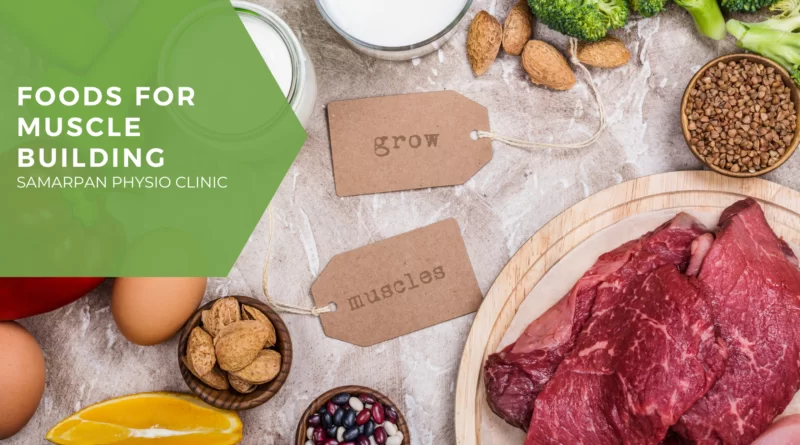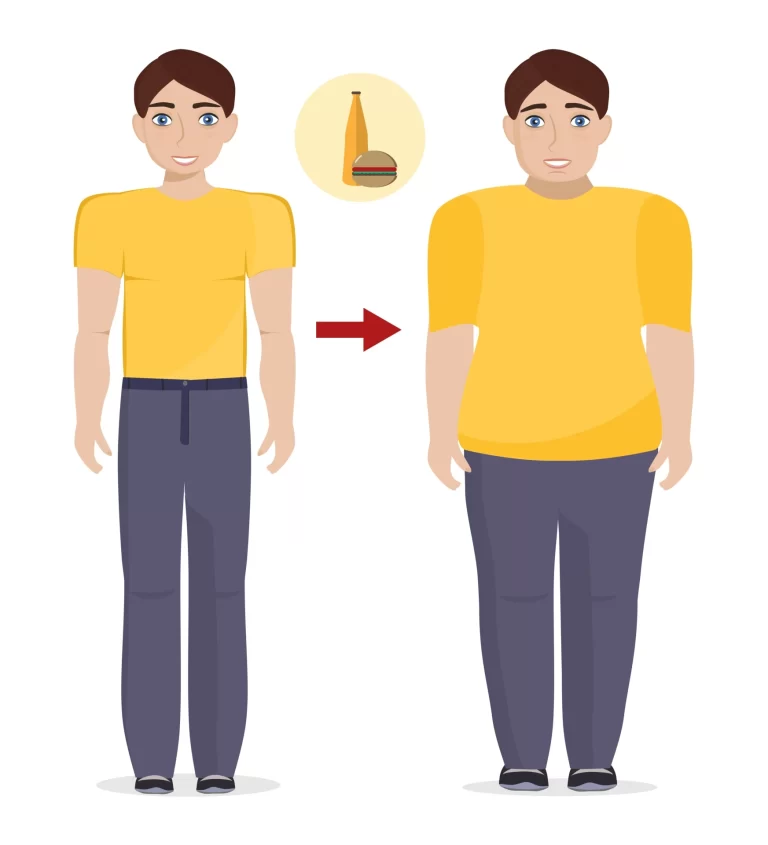21 Best Foods for Muscle Building
Muscle building, also known as resistance training or weightlifting, is the process of increasing muscle mass and strength through the use of resistance exercises. Resistance exercises are exercises that work against a force, such as a weightlifting, bodyweight exercises, and resistance band exercises. These exercises cause micro-tears in muscle fibers, which in turn triggers the body’s natural healing process and leads to muscle growth.
The muscle-building process is a result of progressive overload, which means gradually increasing the weight, reps, and sets off an exercise over time. This causes the muscle fibers to adapt and grow stronger in response to the increased stress. It’s important to note that muscle building is not just about lifting heavy weights, but also about using proper form and technique to target specific muscle groups.
A well-rounded muscle-building routine typically includes exercises for all major muscle groups, including the chest, back, shoulders, legs, and arms. It’s also important to incorporate exercises that work on the core and grip strength.
Building muscle requires a combination of strength training and proper nutrition. In order to fuel your workouts and promote muscle growth, it’s important to consume a diet that is rich in protein and other essential nutrients.
Table of Contents
Benefits of Muscle Building
Muscle building offers a wide range of benefits for both physical and mental health. Here are some of the benefits:
- Increased Strength: Resistance training builds strength and improves performance in daily activities and other physical pursuits. Increased muscle strength can also improve balance, reduce the risk of falls and injuries, and increase overall mobility and flexibility.
- Improved Body Composition: Muscle building helps to reduce body fat and improve body composition, resulting in a leaner, more toned physique. This can also improve overall health by reducing the risk of obesity, heart disease, and other health problems associated with excess body fat.
- Enhanced Metabolism: Building muscle increases the body’s metabolism, leading to increased calorie burning and weight loss. This can also help to maintain a healthy weight and reduce the risk of metabolic disorders such as type 2 diabetes.
- Improved Bone Density: Resistance training has been shown to improve bone density, reducing the risk of osteoporosis and other bone-related health issues.
- Reduced Stress and Anxiety: Exercise, including muscle building, has been shown to reduce stress and anxiety, improve mood and self-esteem, and promote overall mental health.
- Increased Cardiovascular Health: Resistance training has been shown to improve cardiovascular health, including reducing blood pressure and improving blood lipid profiles.
- Long-Term Health: Muscle building is associated with a reduced risk of chronic diseases such as cancer, heart disease, and stroke, and is beneficial for overall longevity and healthy aging.
How Food Affects in Muscle Building
Proper nutrition is crucial for muscle building. The food we eat provides the energy and nutrients our body needs to repair and grow muscle tissue. Consuming enough protein, carbohydrates, and healthy fats, as well as essential vitamins and minerals, is essential for muscle growth.
Protein is said to be the most important nutrient for muscle building. It’s the building block that helps to repair and grow muscle fibers, making them stronger and bigger. Good sources of protein include chicken breast, fish, beef, eggs, Greek yogurt, cottage cheese, milk, lentils, black beans, quinoa, and tofu.
Carbohydrates provide the energy needed for lifting weights and exercising. Eating a diet rich in carbohydrates can fuel workouts and promote muscle growth. Good sources of carbohydrates include sweet potatoes, brown rice, oats, and fruits and vegetables.
Healthy fats, such as omega-3 fatty acids, can help to reduce inflammation and promote muscle recovery. They also boost testosterone levels, important for muscle growth. Good sources of healthy fats include fish, nuts, seeds, and avocados.
Vitamins and minerals like vitamin C, vitamin D, iron, and calcium are also essential for muscle recovery and growth. They can be found in fruits and vegetables, as well as fortified foods like milk and yogurt.
It’s important to keep in mind that balance and moderation are key when it comes to muscle building. Consuming too much or too little of any of these nutrients can have negative effects. Consult a nutritionist to help plan a diet tailored to your specific needs and goals.
21 Best Foods for Muscle Building
Chicken breast: Chicken breast is a great source of lean protein, with one 3-ounce serving containing 26 grams of protein.
Fish: Fish, such as salmon, tuna, and halibut, is a great source of omega-3 fatty acids, which are important for muscle recovery and growth.
Beef: Beef is a great source of protein, iron, and other essential nutrients. Opt for lean cuts of beef to get the most benefits.
Eggs: Eggs are an excellent source of protein, with one large egg containing 6 grams of protein. An egg is also a good source of healthy fats and other important nutrients.
Greek yogurt: Greek yogurt is a great source of protein, with one cup containing up to 20 grams of protein.
Cottage cheese: Cottage cheese is a great source of protein, with one cup containing up to 28 grams of protein.
Milk: Milk is a great source of protein, with one cup containing 8 grams of protein.
Lentils: Lentils are a great source of protein and fiber, with one cup containing 18 grams of protein. They are also a good source of iron and other essential nutrients.
Black beans: Black beans are a great source of protein, with one cup containing 15 grams of protein. They are also a good source of fiber and other essential nutrients.
Quinoa: Quinoa is a great source of protein, with one cup containing 8 grams of protein.
Tofu: Tofu is a great source of protein, with one cup containing 10 grams of protein.
Peanut butter: Peanut butter is a great source of healthy fats and protein, with two tablespoons containing 8 grams of protein.
Almonds: Almonds are a great source of healthy fats and protein, with one ounce containing 6 grams of protein.
Chia seeds: Chia seeds are a great source of healthy fats and protein, with one ounce containing 4 grams of protein.
Spinach: Spinach is a great source of iron and other essential nutrients, which are important for muscle recovery and growth.
Sweet potatoes: Sweet potatoes are a great source of carbohydrates, which are important for fueling your workouts and promoting muscle growth.
Brown rice: Brown rice is a great source of carbohydrates, which are important for fueling your workouts and promoting muscle growth.
Oats: Oats are a great source of carbohydrates and protein, with one cup containing 6 grams of protein.
Broccoli: Broccoli is a great source of vitamin K and other essential nutrients, which are important for muscle recovery and growth.
Berries: Berries are a great source of antioxidants, which are important for muscle recovery and growth.
Water: Water is essential for muscle recovery and growth, so make sure to drink plenty of it throughout the day.
Incorporating these foods into your diet can help you to fuel your workouts and promote muscle
Foods to Avoid while Building Muscle
While it’s important to consume a healthy, balanced diet for muscle building, there are certain foods that should be avoided or limited to promote optimal muscle growth. Here are some of the foods to avoid or limit when muscle building:
Processed Foods: Processed foods are often high in added sugars, unhealthy fats, and preservatives, and provide little nutritional value. They can also lead to inflammation and oxidative stress, hindering muscle growth.
Sugary Drinks: Sugary drinks like soda, energy drinks, and sports drinks are high in added sugars, providing little nutritional value and increasing the risk of obesity and type 2 diabetes.
Alcohol: Alcohol can interfere with protein synthesis, reducing muscle growth and recovery. It can also lead to dehydration and nutrient deficiencies, hindering overall health and performance.
High-Fat Foods: While healthy fats are important for muscle growth and overall health, high-fat foods like fried foods, fast food, and high-fat dairy products can be detrimental to muscle growth and overall health. These foods are often high in calories and unhealthy fats, leading to weight gain and other health issues.
Excessively Salty Foods: Excessively salty foods like processed snacks, canned foods, and fast food can lead to water retention and bloating, hindering muscle growth and overall health.
Low-Calorie Diets: While it’s important to maintain a healthy weight for overall health, excessively low-calorie diets can hinder muscle growth and recovery. A diet that is too low in calories can lead to nutrient deficiencies and a lack of energy, making it difficult to fuel workouts and promote muscle growth.
Conclusion
In conclusion, while there are many foods that can support muscle growth and overall health, it’s important to avoid or limit certain foods that can hinder progress. A well-rounded, balanced diet that includes lean protein, complex carbohydrates, healthy fats, and essential vitamins and minerals is key for optimal muscle growth and overall health.







